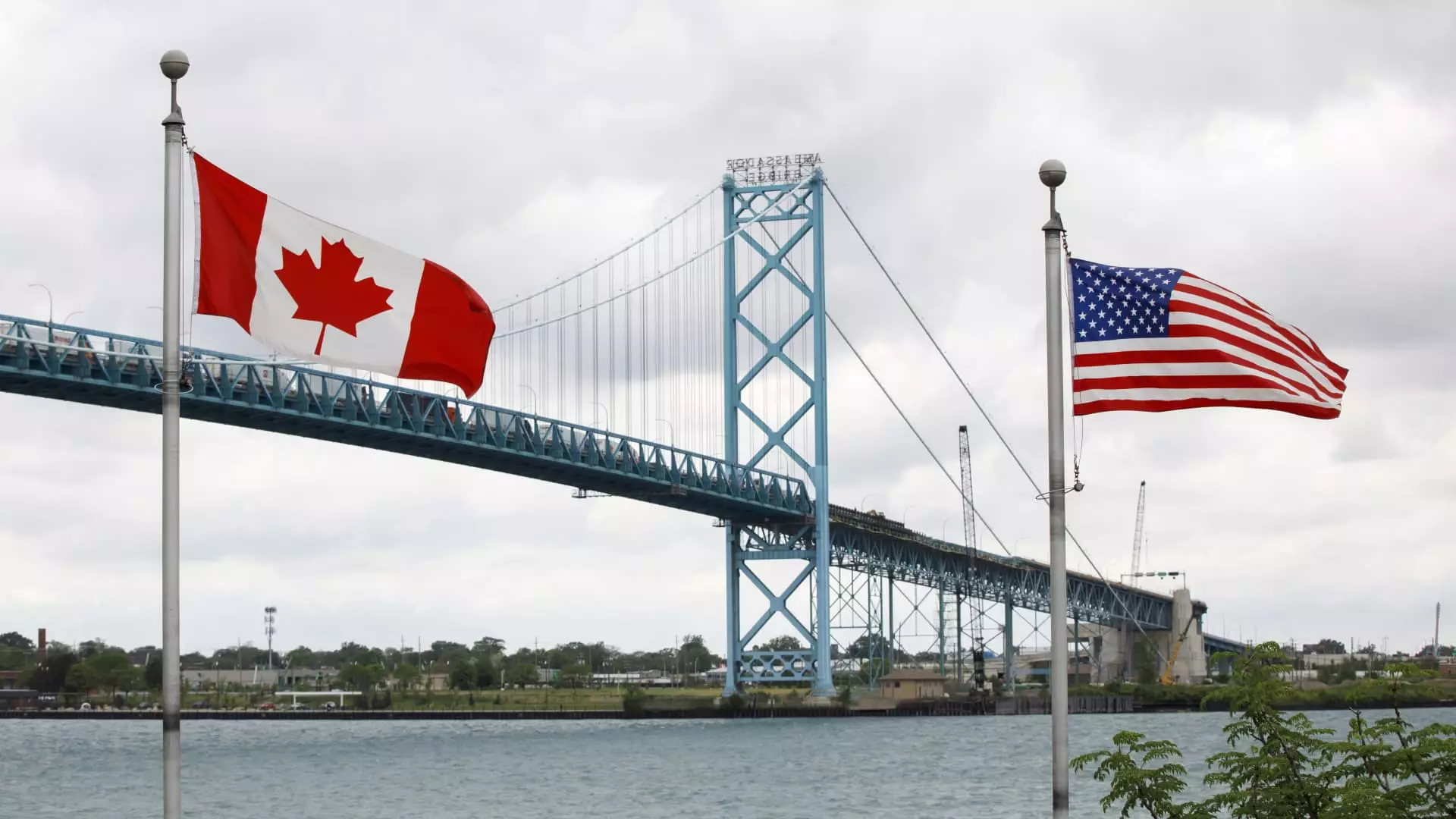As political tensions rise, the Canadian automotive industry finds itself in the crosshairs of President-elect Donald Trump’s proposed trade policies, especially the suggested 25% tariffs on Canadian imports. This sweeping move raises significant alarm bells for stakeholders across the border, particularly in Ontario, which serves as the cornerstone of Canada’s automobile manufacturing. With major automakers producing millions of vehicles aimed primarily at the U.S. market, the implications of these tariffs are profound and potentially devastating.
Ontario stands as a vital player in the North American automotive landscape. In 2023 alone, the province produced over 1.54 million light-duty vehicles, primarily for American consumers. The fear among industry experts and provincial leaders, such as Premier Doug Ford, is that a tariff could lead to widespread job losses in both Canada and the U.S. The fabric of trade between the two nations is tightly interwoven, as raw materials and components frequently cross the border several times before culminating in the final product. Such an imposition of tariffs would undoubtedly disrupt this rhythm, leading to inflated production costs and increased vehicle prices.
Premier Ford’s assertions underscore the interconnected nature of the automotive supply chain. He suggested that imposing tariffs would trigger a detrimental chain reaction: increased prices for consumers, slowed production rates, and ultimately, loss of jobs. This perspective invites scrutiny on a broader scale, challenging the notion that such tariffs could serve American interests without significantly harming the Canadian economy — and vice versa.
The current trade agreement between the United States, Canada, and Mexico provides a framework that has enabled both sides to thrive. Premiers like Ford argue for a bilateral agreement that acknowledges the unique interdependence of the U.S. and Canada while maintaining a critical eye on Mexican regulations and labor practices. Trump’s lack of detailed guidance on exceptions to the proposed tariffs adds layers of uncertainty to an already precarious situation.
Utilizing “national security” as a pretext for tariffs introduces a contentious notion that could have long-lasting repercussions. The vagueness surrounding what qualifies as “national security” in this context could lead to further escalations in trade disputes, impacting markets and industries beyond automotive.
The economic stakes are high. According to estimates from Wells Fargo, tariffs could inflate the cost of vehicle production by $600 to $2,500 per vehicle, drastically affecting prices in the U.S. market. Vehicles manufactured in Canada and Mexico — essential to the automotive supply chain – account for roughly 23% of all vehicles sold in the U.S. The projected price increases of $1,750 to $10,000 per vehicle could place a significant burden on consumers, altering purchasing behaviors and ultimately leading to decreased sales.
Moreover, these tariffs could exacerbate existing issues within the Canadian auto industry, which has struggled with a long-term decline exacerbated by the COVID-19 pandemic. While recent production rates show signs of recovery, this burgeoning growth is now threatened, particularly given the industry’s precarious transition to electric vehicles (EVs). Uncertainty surrounding EV market adoption, coupled with proposed cuts to federal subsidies that have historically bolstered this sector, add a layer of complexity to an already tenuous landscape.
As voices in the industry rally for cooperative trade relationships, the overarching message is clear: collaboration must be prioritized over divisive tariffs. As Premier Ford highlighted, the focus should shift toward global trade adversaries, making allies of the U.S. and Canada to fortify their economies against external threats. With growing challenges posed by nations like China, generating collective strategies might yield greater security and economic prosperity than isolating key partners through punitive tariffs.
In summation, the looming tariffs proposed by Trump pose an existential threat not just to the Canadian automotive sector but to the complex interdependencies that define North American trade relations. The intertwining destinies of Canadian and American automotive industries are a testament to the necessity of approaching future trade discussions with a vision grounded in mutual benefit and respect, rather than confrontational policies that risk escalating tensions and economic instability.

